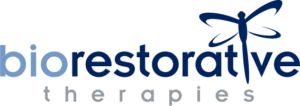[ad_1]
In 2009, two nonprofits released a report on accreditation and governing boards amid worries about academic quality and accountability in higher ed. More than a dozen years later, they’ve updated it in response to a slew of new pressures that include threats to colleges’ independence.
Colleges’ governing boards must better understand accreditation, argues that new report, released by the Association of Governing Boards of Universities and Colleges, or AGB, and the Council for Higher Education Accreditation, or CHEA. Much has changed since 2009, the report says, as colleges now face heightened problems stemming from declining enrollment, constrained state funding and sometimes shaky finances.
Institutions also face challenges that don’t show up on balance sheets: pandemic-related stresses, remote instruction, public skepticism, threats to freedom of speech, tensions over diversity, equity and inclusion — and external influences.
“Perhaps the greatest challenge is that posed by external influences, which threaten the independence of governing boards and principles of citizen trusteeship,” the report says. “This threat can be particularly problematic at public institutions whose board members are typically political appointees, though undue influence and intrusion can also come from influential donors, alumni, legislatures, the media, and others.”
Concern about outside influence might bring to mind recent challenges to accreditation. This month, Florida lawmakers passed a bill that would force public colleges in the state to change accreditors every accreditation cycle.
But the new report is not a response to specific events in Florida, said Henry Stoever, AGB’s president and CEO. It is intended to help board members at institutions across the country better oversee colleges and universities.
“It’s about trust,” Stoever said. “What accreditation is intended to do, it’s not only around academic quality and financial integrity, but trust — public trust that these institutions of higher education are trustworthy.”
Many of the people who sit on colleges’ governing boards are not from the academy and might not be familiar with processes like accreditation, said Cynthia Jackson-Hammond, CHEA’s president.
“They are from industry, they are from corporations or the public,” Jackson-Hammond said. “Providing context about accreditation is important, because boards come and go. You have to keep reeducating and making them aware of their fiduciary responsibilities.”
What is accreditation?
The report includes a rundown of the basics of accreditation, which it calls a fluid, continuous process designed to boost academic quality, financial strength and student success.
It is a voluntary undertaking based on review by peers. But that does not mean it is well understood.
“While accreditation is a critical tool for quality assurance and accountability for higher education, many — perhaps most — board members lack a solid understanding of what accreditation is and why it signals an institution’s commitment to academic quality and fiscal integrity,” the report says.
Accreditation is part of the so-called triad regulating higher education in the U.S., along with federal and state agencies. Colleges must obtain certain accreditation if they want to receive federal funding like student financial aid, research dollars and other program funds. Such federal funding totals more than $150 billion per year, the report says.
Whole institutions can be accredited. So too can individual programs. About 90 accreditors operate in the United States with either CHEA or federal recognition.
Not all accreditors serve as gatekeepers for federal funding. Those that do are recognized by the federal government.
Loss of accreditation and the resulting loss of federal funding is widely considered a fatal blow for many colleges.
The accreditation process normally starts with a self-study conducted by an institution or program, followed by a visit from accreditors’ members who are trained to evaluate performance. Accreditation must be renewed on a cycle, but the specific time of cycles varies.
What it means for governing boards
College governing board members have a fiduciary duty to their colleges. Understanding accreditation is key to fulfilling that responsibility, the report says.
“Governing boards of institutions and systems need to be appropriately engaged in the accreditation process, respect the leadership of the chief executive officer, the chief financial officer, the chief academic officer, and the faculty; acknowledge the importance of accreditation to serving students; and understand that board engagement, awareness, and follow-up are fundamental to their fiduciary responsibilities,” it says.
The report recommends ways boards can be engaged in the accreditation process. They include:
- Establishing an accreditation education program for board members.
- Monitoring their institutions’ accreditation status.
- Developing a plan for board involvement in accreditation reviews.
- Crafting a plan for board leaders to work with college presidents on accreditation, such as by meeting with visiting accreditation teams.
The report also suggests that board members become familiar with accrediting standards related to board governance. Those standards include protecting colleges from undue influence and focusing on strategic governance and oversight rather than daily operations and management.
Chief executives have a role to play as well, according to the report. It suggests college executives engage board members in regular accreditation reviews and make sure they know about issues flagged as part of those reviews.
The report comes two months after a group of experts and advocacy organizations asked the U.S. Department of Education to oversee accreditors more strictly. One of those organizations was Third Way, a center-left think tank.
Shelbe Klebs, education policy adviser at Third Way, in an emailed statement called accreditation an important tool for higher ed quality assurance, despite the pressures it faces.
“They’re encouraging boards to take on a more active role in accreditation and the comprehensive roadmap laid out in the statement will ideally make that involvement easier and make accreditation more transparent at all levels of institutional leadership,” Klebs said.
[ad_2]
Source link





